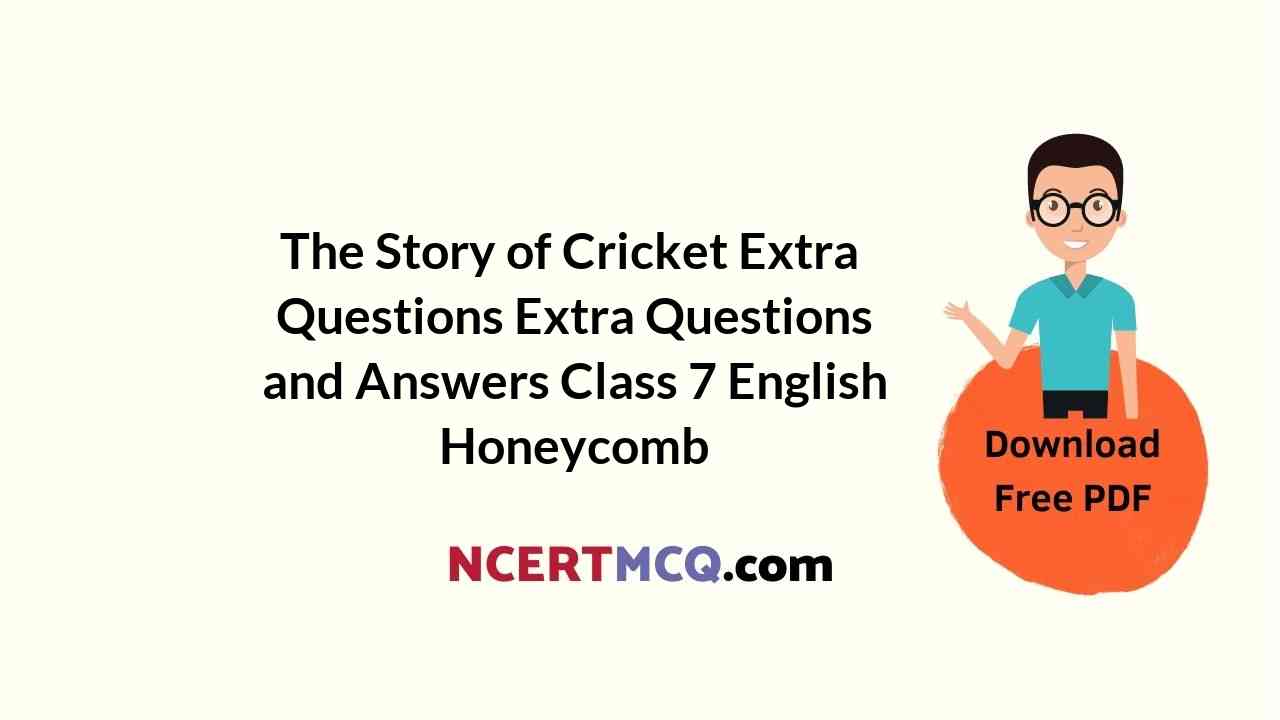Here we are providing The Shed Extra Questions and Answers Class 7 English Honeycomb, Extra Questions for Class 7 English was designed by subject expert teachers.
We have created the most comprehensive The Shed Poem Class 7 Questions and Answers. These Questions and Answers are help to score more marks in your board Exams.
The Shed Extra Questions and Answers Class 7 English Honeycomb
The Shed Extra Questions and Answers Short Answer Type
The Shed Extra Questions Question 1.
Why were the hinges of the door rusty?
Answer:
Since the doors were not opened for a long time, its hinges would have become rusty.
The Shed Poem Class 7 Extra Questions And Answers Question 2.
What does the speaker plan usually?
Answer:
The speaker generally, plans of going inside the shed.
The Shed Poem Extra Questions Question 3.
Why do you think glass window was broken?’
Answer:
The broken glass’panes of the dusty window suggested it to be ignored part of the house. There was hardly anybody who went inside the shed.
The Shed Poem Class 7 Questions And Answers Question 4.
What was his brother’s story about ghost?
Answer:
According to the speaker’s brother the ghost hid himself under the rotten floorboards of the shed.
The Shed Question Answer Question 5.
What did the speaker’s brother try to scare the poet?
Answer:
The speaker’s brother talked about the presence of a ghost inside the shed with an intention to keep him away from shed. He also warned the speaker that if he ever went inside the shed, the ghost might chop off his head.
The Shed Poem Questions And Answers Question 6.
Why is the poet’s desire to visit gets postponed and delayed?
Answer:
The poet planned to enter the shed but he was not very confident, so he seems to have delayed his plan.
Class 7 English The Shed Question Answer Question 7.
The speaker was hesitant initially yet grew confident by the end of the poem. Comment.
Answer:
The initial lines display the horrified appearance of the shed. The poet affirms his faith in himself and confidently resolves to enter the shed.
Class 7 English The Shed Extra Questions Question 8.
Why do you think that the spider web hanging on the door was no longer there?
Answer:
The first time when the speaker describes the shed, the speaker talks about a spider web hanging across the door of the shed. However, the next time when the speaker describes the shed, the speaker shares that it had been a long time since the spider and the web were not to be seen. Perhaps the door of the shed had been opened by the speaker’s brother, thereby displacing the spider’s web that covered the door.
The Shed Class 7 Extra Questions Question 9.
Answer the following questions.
(i) Who is the speaker in the poem?
(ii) Is she/he afraid of curious, or both?
(iii) What is she/he planning to do soon?
(iv) “But not just yet…” suggests doubt, fear, hesitation, laziness or something else. Choose the word which seems right to you. Tell others why you chose it.
Answer:
(i) The speaker of the poem is poet Frank Flynn when he was a small boy.
(ii) He was curious not afraid as she/he always peep through that window and ready to take a peek one day.
(iii) He is planning to go inside the shed soon.
(iv) “But not just yet…” Suggests the hesitation of the poet from going inside that shed. Though he was confident that there were no ghosts but still he was hesitated to go inside and thought that soon he will go inside the shed but not now.
The Shed Extra Questions and Answers Reference to Context
Extra Questions Of The Shed Question 1.
There’s a shed at the bottom of our garden
With a spider’s web hanging across the door,
The hinges are many and creak in the wind.
When I’m in bed I lie and I listen,
I’ll open that door one day.
Explanation
There is a shed at the bottom of the poet’s garden and the poet wishes to visit it one day. There is a . spider’s web on the door of the shed and its hinges are rusty and creak when the wind blows. The poet often thinks about it while lying in his bed. He decides to open the gate of the shed.
(i) Where was the shed?
(ii) What does the presence of a spider’s web show?
(iii) What do ‘spiders web’ and ‘Rusty and creaky’ imply?
(iv) What is the plan of the poet?
Answer:
(i) The shed was at the bottom of garden.
(ii) It shows that the place was not often visited and is ignored part of the house.
(iii) These implies that the place was a hunted place.
(iii) The poet’s plan is to open the door of the shed.
The Shed Extra Question Answers Question 2.
There’s a dusty old window around at the side
With three cracked panes of glass,
I often think there’s someone staring at me
Each time that I pass,
I’ll peep through that window one day.
Explanation
On one side of the shed, there is a dusty window and three of its window panes are broken. The poet feels as if someone stares at him through the window and whenever the poet visits the shed he would like to find out who lives there.
(i) What is the state of window of the shed?
(ii) What does he feel when he pass across the shed?
(iii) What is planning for ‘one day’?
(iv) Give the meaning of‘staring’.
Answer:
(i) The old window was dusty and has three cracked glass panes.
(ii) It seems to him that someone’s staring at him each time he passes.
(iii) He plans that he will peep through the window of the shed.
(iv) Gape.
Question 3.
My brother says there’s a ghost in the shed
Who hides under the rotten floorboards,
And if I ever dare to set foot inside
He’ll jump out and chop off my head,
But I’ll take a peek one day.
Explanation
The poet’s brother informs him that a ghost lives inside the shed and if the poet dares to enter the shed, the ghost would chop off his head. Despite these warnings, the poet wishes to visit the shed and peep inside.
(i) Who informed about the presence of the ghost?
(ii) Where does the ghost hide?
(iii) What harm will the ghost cause to the poet?
(iv) What was his brother aiming at?
Answer:
(i) The poet’s brother informed him about the presence of the ghost.
(ii) The ghost hides under the rotten floor boards.
(iii) The poet’s head will be chopped off by the ghost if dare to enter the shed.
(iv) His brother tried to scare him away from the shed.
Question 4.
I know that there isn’t really a ghost, .
My brother tells lies to keep the shed for his den;
There isn’t anyone staring or making strange noises
And the spider has been gone from his web Since I don’t know when,
I’ll go into that shed one day soon,
But not just yet…
Explanation
The poet believes that his brother tells him imaginative stories about the ghost as he wants to keep the shed for himself. The poet no longer feels anyone staring at him or hears any strange noises coming from the shed. The spider, too, is no longer there. Thus, very soon he would go inside the shed.
(i) How does his brother use the shed?
(ii) Explain ‘There is not anyone staring or making strange noises’.
(iii) What does ‘But not just yet’ mean?
(iv) Do you think the poet believed ghost stories of his brother?
Answer:
(i) His brother uses the shed as his den.
(ii) The poet is rational in his approach. He knows that no ghost exists in the shed.
(iii) It means that the poet wants to visit the shed but is delaying it. It seems that he wants to gather the strength first before daring anything.
(iv) The poet decided to enter the shed because he thought that the ghost stories were concocted by his brother.










